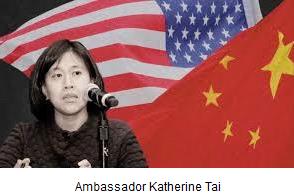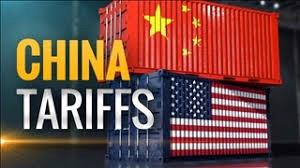 The Administration has been sending smoke signals regarding rescission of tariffs imposed by the previous Administration on imports from China. There is pressure to lower tariffs on many items to reduce the negative effects of inflation that now have both economic and political repercussions leading into the midterms. Policy advisors within the White House, including the U.S. Trade Representative, wish to retain tariffs as leverage against China in future trade negotiations.
The Administration has been sending smoke signals regarding rescission of tariffs imposed by the previous Administration on imports from China. There is pressure to lower tariffs on many items to reduce the negative effects of inflation that now have both economic and political repercussions leading into the midterms. Policy advisors within the White House, including the U.S. Trade Representative, wish to retain tariffs as leverage against China in future trade negotiations.
 Even if tariffs were lowered, this action would have little effect on U.S. exports of agricultural commodities. Grains and soybeans imported by state-owned trading companies in China benefit through exemptions from duty.
Even if tariffs were lowered, this action would have little effect on U.S. exports of agricultural commodities. Grains and soybeans imported by state-owned trading companies in China benefit through exemptions from duty.
The agricultural community might experience some relief following a reduction in tariffs through lower prices for imported raw materials used to manufacture crop protection products and components of agricultural machinery.
It would be in the interest of all consumers and the agricultural sector if the Administration could develop and implement a coherent policy on mutually destructive tariffs on goods from China. This would be necessary to provide certainty to facilitate planning and execution of new projects and ongoing operations.